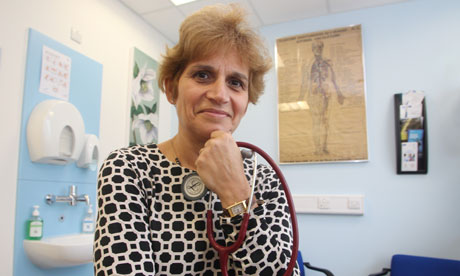
GPs have been told to undergo proper training before they fit women with contraceptive implants in order to avoid repeating mistakes that have led to hundreds of unwanted pregnancies.
Family doctors are being warned they could be liable to pay patients damages if they insert a hormonal implant without first acquiring the necessary skills.
The move has been made by the Medical Defence Union (MDU), which represents more than half of the UK's family doctors and advises them about issues involving their competence, including alleged clinical negligence. It follows January's revelation that 584 women had conceived despite having had an Implanon implant and 1,607 complaints had been made about them to the Medicines and Healthcare Products Regulatory Agency, the NHS's medical devices regulator, including problems such as scarring. Around 800,000 women use Implanon, and a total of 1.4 million have done so since it was first licensed for use in the UK in 1999. If fitted correctly just under the skin under the arm, the plastic implants are 99% effective and work for up to three years. The hormone-releasing tubes have soared in popularity in recent years and have become a key aid in the fight against teenage pregnancy.
The MDU is issuing new advice to GPs telling them that they need to be properly trained before they fit one and always obtain a letter certifying their competence from the Faculty of Sexual and Reproductive Healthcare, which is part of the Royal College of Obstetricians and Gynaecologists.
Dr Rupert Lee, the MDU clinical risk manager who drafted the advice, said an apparent lack of training was a common feature of the 29 claims for damages it had received against member GPs. In 11 of those cases the woman had experienced an unwanted pregnancy, some of which had ended in a termination. The MDU has paid out more than £100,000 to settle six of those 11 claims, each costing up to £30,000. GPs may have made mistakes when inserting them into the 11 women, possibly due to a lack of training, Lee said. Some of the other 18 cases are still ongoing.
Eight other cases involved problems with insertion, including the implant being placed too deeply into the arm, which led to muscle and tissue being damaged when it was later removed or it being hard to find. The problems have led manufacturers MSD to replace Implanon with an improved version, called Nexplanon, which has its own pre-loaded applicator and is detectable by X-ray.
The MDU is also advising GPs to take other steps, including:
■ giving patients full information about the risks and benefits of, and alternatives to, the implants, including the failure rate and risk of complications when inserted and removed;
■ explaining and apologising to patients if a problem arises, and take steps to handle the consequences;
■ arranging regular follow-up reviews of how the implant is working;
■ considering and excluding the possibility of a uterine or ectopic pregnancy in any woman using an implant who on examination may be expecting.
Dr Clare Gerada, chairwoman of the Royal College of GPs, welcomed the move. "If the MDU's advice helps women get effective contraception, then that has to be a good thing. The vast majority of these implants are fitted by GPs, and the vast majority of them correctly," Gerada said.
"However, clearly there have been some problems. But every GP who intends to fit an implant must be competent and confident and be able to show that they have received the necessary training."
Julie Bentley, the chief executive of the Family Planning Association sexual health charity, said: "In principle, the FPA welcomes the fact that there are now additional guidelines for GPs about inserting contraceptive implants."

